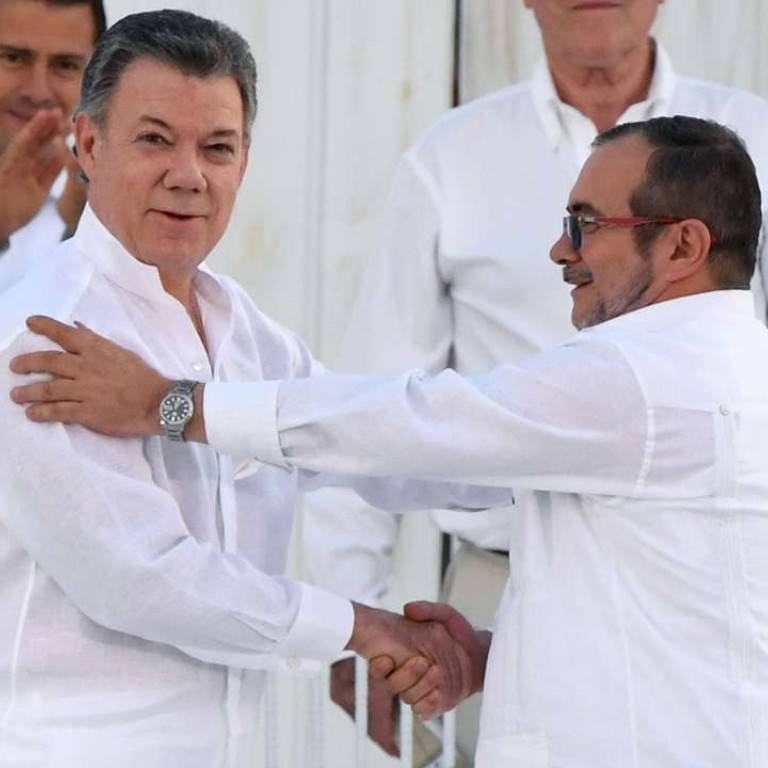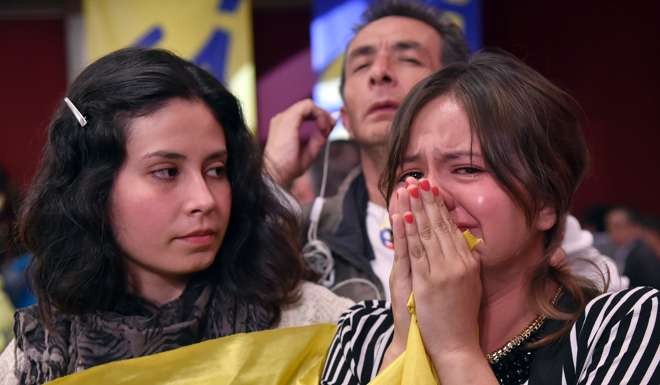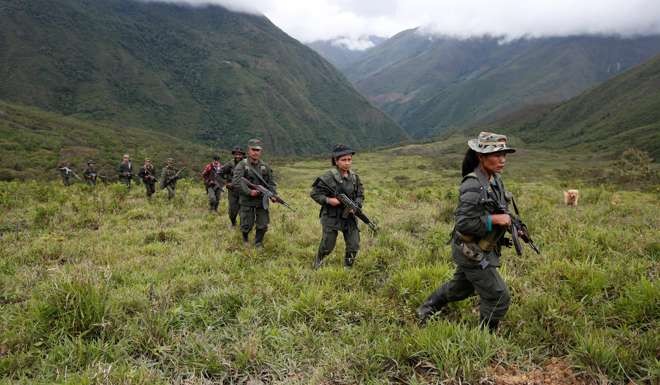
Nobel prize for Colombian leader can act as an incentive to forging a lasting peace with rebels
Juan Manuel Santos suffered a setback when a referendum rejected the deal with Farc guerillas but award can help put the pact back on track
Nobel Peace Prize recipients are chosen not just for their achievements, but also the inspiration their selection can bring. Colombian President Juan Manuel Santos was named by the award-giving committee for the latter, the peace deal he brokered over five years with leftist Farc guerillas having been rejected in a referendum just days before last week’s announcement.

But the parts of the nation ravaged by the conflict for half a century voted for the accord and while there has been a setback to plans, the honour puts international pressure on all sides, particularly the country’s leader, to ensure that a lasting pact can be struck and implemented.
Santos had expected the deal to be approved by Colombians; he was so certain that the signing ceremony was held just before the vote. Rejection risks the collapse of a ceasefire and resumption of violence that has killed about 220,000 people. The Norwegian committee was surely caught as off-guard as the president, but has turned the prize into as much a lesson as an incentive. In making its announcement, it said the award was intended to “encourage all those who are striving to achieve peace, reconciliation and justice”. There is certainly a need for that; Colombians were not ready to guarantee seats in parliament to Farc and give its leaders immunity.

The Nobel committee’s strategy of using the prize as an incentive for peace has not always worked. It has on occasion opened itself for criticism that it is getting involved in politics, as when it named Barack Obama the recipient nine months after he became US president. But there have also been wholly deserved winners, such as Nelson Mandela and F.W. de Klerk, who emphasised reconciliation for post-apartheid South Africa.
Santos has high expectations to live up to in trying to revive the peace process and this time, make it acceptable to everyone. His decision to donate the almost US$1 million prize to victims of the conflict goes a way towards meeting the committee’s aims.

